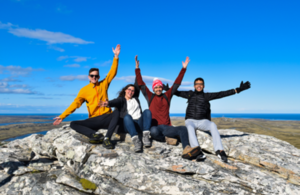UK launches programme to promote trade with Brazil
A new trade facilitation programme will support Brazilian businesses to export, which will help boost trade with countries including the UK.
The £20 million programme will work with existing export promotion and trade facilitation programmes across Brazil to help bring businesses of all sizes to international markets.
By working with a wide range of Brazilian businesses the programme will showcase exporting as another source of income, increasing access to capital, generating jobs in the country and ultimately reducing poverty.
Brazil is the largest economy in South America, accounting for almost 50% of the continents GDP and is home to over 200 million people. As the UK prepares to leave the EU on 31 October, fast-growing markets like Brazil will provide significant opportunities for both UK businesses and households.
Total trade between UK-Brazil was worth £6 billion last year, an increase of over 7% on the previous year.
The programme was launched by Trade Policy Minister Conor Burns and Brazilian Special Secretary for International Trade and International Economic Affairs Marcos Troyjo in Brasilia today (Tuesday 20 August).
Mr Burns is visiting Rio de Janeiro and Brasilia before travelling onto Santiago in Chile on Wednesday.
Trade Policy Minister, Conor Burns said:
I’m delighted to be in South America this week in my first overseas visit as Minister of State for Trade Policy. Our aim is simply to promote British business overseas and strengthen our trading ties in the region. With our existing trading and economic relationship Brazil was the obvious place to start the visit.
The launch of the Trade Facilitation programme will help support Brazil and create opportunities for Brazilian business – including in markets such as the UK.
The trade facilitation programme launched today is part of the UK government’s Prosperity Fund which will see up to £80 million invested in Brazil over the next 4 years. The fund aims to support the inclusive economic growth needed to reduce poverty in partner countries.
The trade facilitation programme will help ensure Brazilian businesses are ready to trade and will address key issues such as non-tariff barriers. It will also help reduce the cost of trade by encouraging more efficient processes in ports, creating a safe environment for companies to innovate while reducing the time it takes for patents and trademarks to be analysed in Brazil.
During his visit Mr Burns will meet with Brazil’s Special Secretary for International Trade and International Economic Affairs Marcos Troyjo and Chilean President Sebastian Pinera.
He will also meet businesses in the region including Weir Minerals, Diageo and BUPA to help increase trade and encourage investment.
